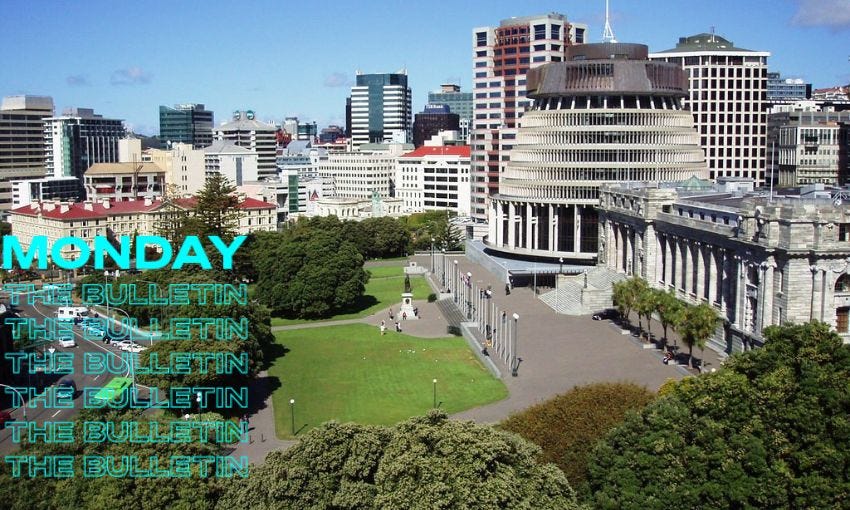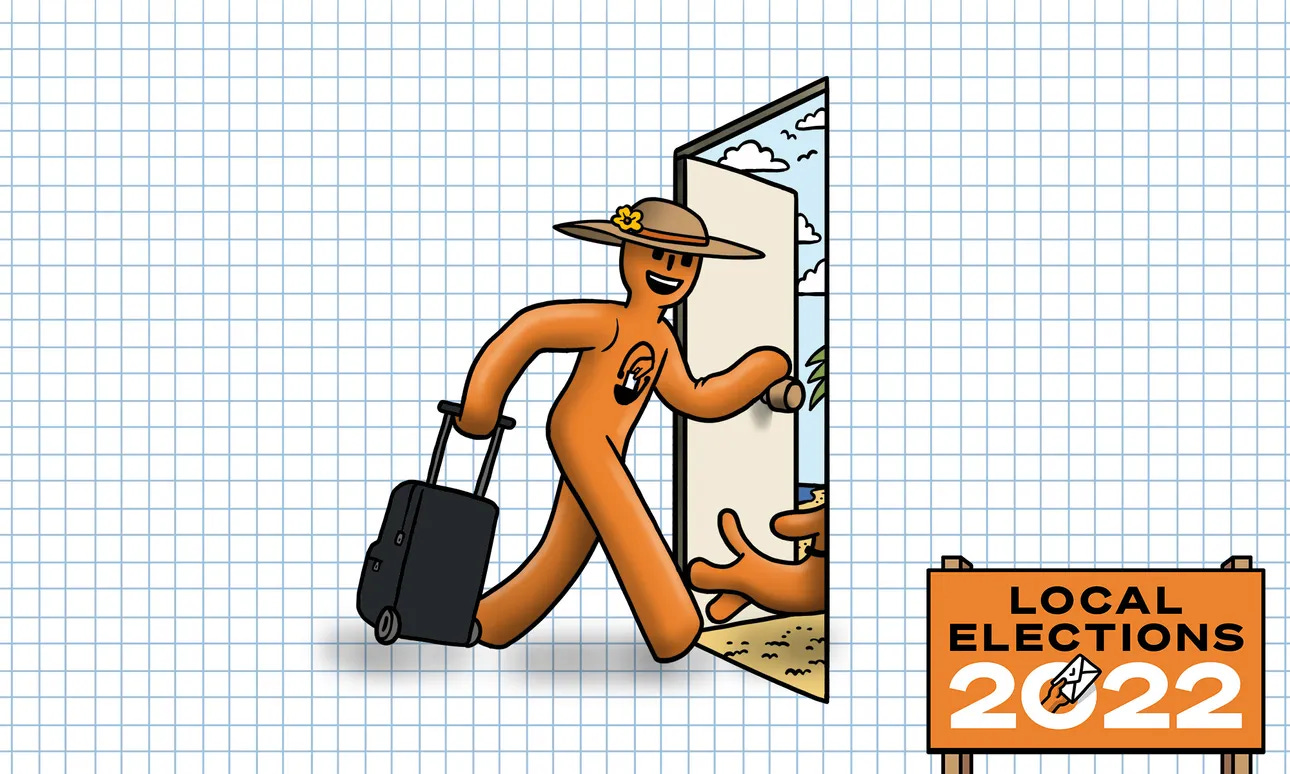How much can the state really do?
A new essay explores the expansion of the administrative state in New Zealand as the government advances its reform agenda and National calls for more power to be placed in hands of the community
In today’s edition: no place for hateful ideologies on school boards; Oranga Tamariki law development fraught from the start; a Supreme Court case set to test the role of the courts in environmental protection; but first, does the state know best?
The seat of government, Wellington (Image: Ewan Munro, CC BY-SA 2.0)
“Why does the government think it knows best?”
I spent the weekend at the Auckland Writers Festival and attended a session with former attorney general and minister for treaty negotiations, Chris Finlayson, and former kaiwhakahaere of Te Rūnanga o Ngāi Tahu, Tā Mark Solomon. Finlayson was unapologetic in his criticism of the reliance on the state to solve all problems. It’s a position he reinforces in a piece for E-Tangata on co-governance, a position he says is fundamentally of the centre right. “Why does the government think it knows best? The government makes heaps of mistakes. I was there for years. I saw; I know,” he writes.
The rise of the professional managerial class
The size of the public sector, and the capacity of the state to solve problems, has long been an ideological argument. In an essay published on the Spinoff yesterday, Danyl Mclauchlan posits that to “question the rapid expansion of the administrative state can only be right-wing hate speech, part of a covert neoliberal plot to gut health, education, welfare.” Mclauchlan references the reform programmes the government is currently undertaking in the health system and for polytechnics, largely through centralisation, and laments the rise of the professional managerial class, of which he says he is part of, who are responsible for those programmes.
Decisions shouldn’t be made by some distant bureaucrat
As I sat in Finalyson and Solomon’s session on Saturday, I thought about the current royal commission of inquiry into abuse in state care. Public service commissioner Peter Hughes appeared at the inquiry on Friday, apologising and acknowledging the shortcomings in the public service. The inquiry is a necessary reckoning but it’s also an enormous exercise in redress, prompted by the actions of a public service that thought it knew best. In comments over the weekend about the current state of the health system, longtime public health champion, Ann Shaw, said “communities needed to be given the support and information to decide for themselves what needed to be done, not have it decided for them by some distant bureaucrat”.
Christopher Luxon calls for powering up of community organisations in dealing with youth offending
Yesterday, leader of the opposition Christopher Luxon called for greater accountability for youth offenders, saying we need more “powerful targeted intervention” and “powering up” of our community organisations. Justice spokesperson Paul Goldsmith agreed contact with the formal justice system should be minimised for first-time offenders but that the pendulum had swung too far. It is a call for less involvement by the state and an echo of Bill English’s social investment approach. It also still seems to contain shades of a punitive state response. In reply to Luxon’s comments, social worker Stephen Boxer cites family group conferences as an effective way of addressing youth offending. It’s a practice National has been critical of in the past, perhaps because it’s seen as soft on crime. It’s underpinned by concepts of community-led rehabilitation and not punitive measures by the state.
Get onto the property ladder
With Co-own from Kiwibank, you could pool your money together with close friends or family to buy a property together. To find out more and to learn if Co-own could work for you visit the Kiwibank website. (Sponsored)
“People who have ideologies of hate shouldn't be allowed on school boards”
In an interview with Q&A’s Jack Tame, associate education minister Jan Tinetti said "people who have ideologies of hate shouldn't be allowed on school boards”. Tame had asked if white supremacicts should be allowed on school boards, a question no doubt prompted by the news that white supremacist Philip Arps is standing for a position on a school board for a multicultural Christchurch school. Arps was sentenced to 21 months' jail for sharing footage of the Christchurch terror attack. Tinetti is currently seeking urgent advice about school board elections. The advice relates to a code of conduct being developed by school boards and whether or not the eligibility component of that code can be afforded more heft via legislation.
Plans to advance Oranga Tamariki monitoring law “fraught from the start”
Stuff’s Michelle Duff has analysis of the thinking and documentation that underpinned the passing of a bill last week that provides for the monitoring and oversight of Oranga Tamariki. Duff details the many inquiries that have taken place into Oranga Tamariki’s care and protection practices since 2018 and finds that even as these were happening, the government were forging ahead with an approach to create an independent monitoring mechanism for Oranga Tamariki, even though they knew it would be unpopular and face opposition.
The Spinoff Members is a community dedicated to supporting quality, homegrown journalism.
From our newsletters and podcasts, to our coverage of te ao Māori and political reporting – the support of readers like you makes this work possible and helps to ensure it remains freely available to all. If you can, please consider making a contribution today.
Click and collect
Modelling supports a “test to release” policy for Covid isolation.
The collapse of Ireland’s rental market and what can be learned.
Council candidate campaigning on fixing Wellington’s infrastructure cuts off internet to homes with billboard stake.
Liquefaction risk identified at planned site of new Nelson library.
The rising cost of your takeaway coffee.
Got some feedback about The Bulletin, or anything in the news? Get in touch with me at thebulletin@thespinoff.co.nz.
If you liked what you read today, share The Bulletin with friends, family and colleagues.
Toby Manhire explains why so many people are calling for the Electoral Commission to oversee local voting; Duncan Greive analyses what the rise and rise of TikTok among teens will mean for NZ media; Author Sharon Lam bemoans the impossibility of writing a second novel; Tara Ward discovers the secrets of Country Calendar’s enduring success; and Reweti Kohere argues that the best McDonald’s burger is actually the Filet-o-Fish.
Our Friday poem editor Chris Tse was named as New Zealand’s poet laureate on Friday morning. The news was greeted by a wave of joy within the literary community and Claire Mabey outlines why it generated so much excitement. Congratulations Chris. There’s never been a better time to wear a black sequined cape.
The All Blacks are not very good.
“There. That’s it.” If you’re after some analysis of the All Blacks losing to the Pumas on Saturday night, Dylan Cleaver has you covered. If you would prefer to pretend that did not happen or are simply uninterested, may I recommend this report on the Steel Blacks, New Zealand’s mediaeval combat team.
“What are you here for, if you’re not here for the biggest crisis of our time?”
A local long read today. It’s a feature from Newsroom’s David Williams on a case before the Supreme Court that deals with the question of whether our courts should intervene to restrict polluting companies. Mike Smith is suing seven companies, claiming environemental harm from their activities. Smith is well-known for cutting down the pine on top of Maungakiekie/One Tree Hill. The Spinoff featured him and the chainsaw that was used in an episode of The Single Object in 2020.
As Williams writes: “On one side a Māori leader, alleging in court seven big companies are contributing to the loss of his whenua and harm to the taonga of his whānau. On the other, polluting companies saying they’re operating within the law, and to accept such claims would require judicial contortions akin to those seen in the film The Matrix.”










